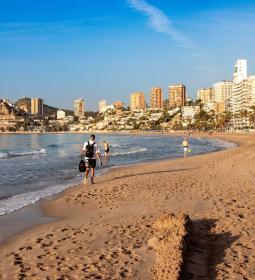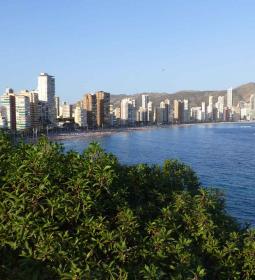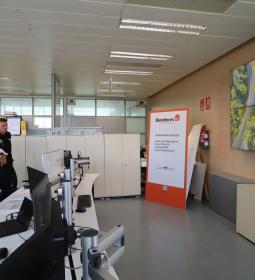The Governing Board will approve the project for the action on Monday after the information committees approve the project
Benidorm begins the bidding process for the second phase of the renovation of the hydraulic infrastructure on Montecarlo Avenue

The goal is to begin the works, which affect the section between Roma and Berlin streets, after the summer
Benidorm City Council has already begun the tendering process for the second phase of the water infrastructure renovation works on Avenida Montecarlo, specifically the section from Berlín Street to Roma Street. With the project, carried out by the concessionaire Hidraqua, now complete and with a favourable report from municipal technicians, the next step will be its opinion in the upcoming information committees and its subsequent approval by the Local Government Board to begin the bidding process.
In this regard, the Councilor for Water Cycle, José Ramón González de Zárate, recalled that "as we stated before the completion of the works on the section between Berlín and Paris, we were going to approve the project before the summer so we could put out to tender and award contracts during the peak season and thus begin work as soon as the summer season ends." "We met the deadlines we announced," the councillor added.
The works to be carried out are similar to those already carried out for the renovation of the avenue in the section between Berlin and Paris. The project will include renovations to the sewage, drinking water, and stormwater networks, lighting, and the municipal network, paving and vertical and horizontal signage, landscaping, and irrigation. The reclaimed water network will be incorporated, as was done in the first phase.
The works are financed by Hidraqua from the Renovation Funds. The base tender budget for the project is €1,516,232.14, and the estimated execution period is twelve months.
The project specifies some modifications compared to the initial project carried out in 2021 for the entire avenue. Thus, regarding street trees, the current plane trees have been replaced with photinia (Photinia serrulata) or privet (Ligustrum japonica) to avoid root problems and because they are more suitable for urban pedestrian spaces.
The typical section of the avenue will maintain the principle of accessibility and improved urban mobility, and will retain a large part of the current parking areas. The same technical and aesthetic solution has been adopted for the pavement as in the first phase, and regarding street lighting, all the lights will be replaced with more efficient ones, funded by subsidies awarded by the IDAE (National Institute of Statistics and Census), so no costs are planned for this.
González de Zárate emphasised that this project "was a promise and a proposal from the governing team, and what we are doing is fulfilling our promise to the residents after the inconveniences we experienced with the previous company, which entered into bankruptcy and left the project half-finished."




